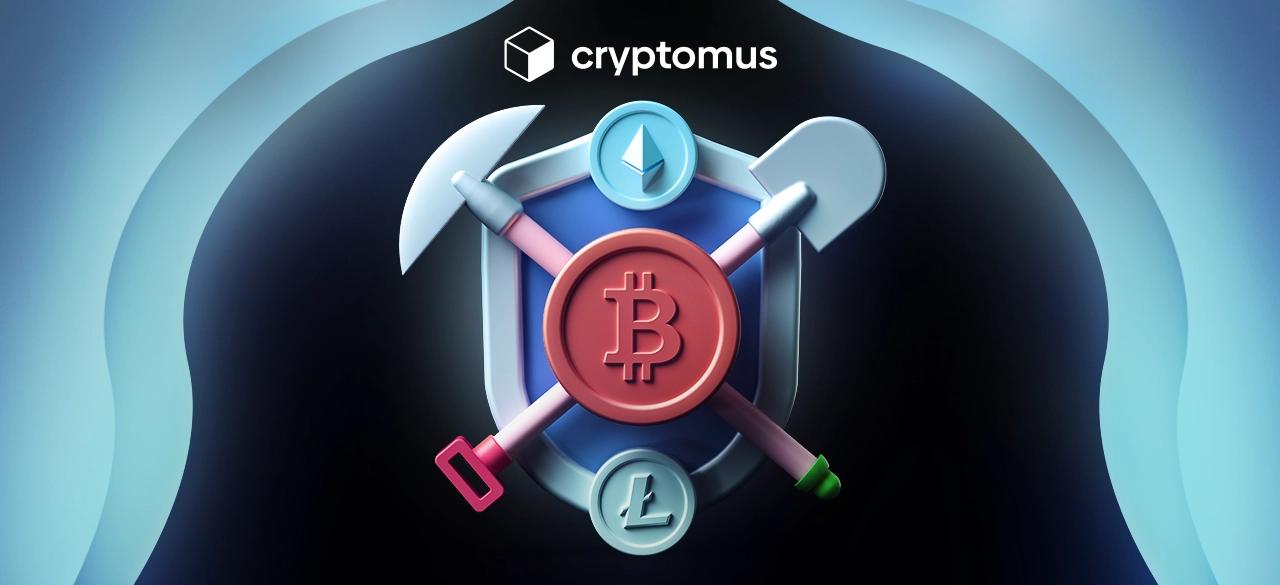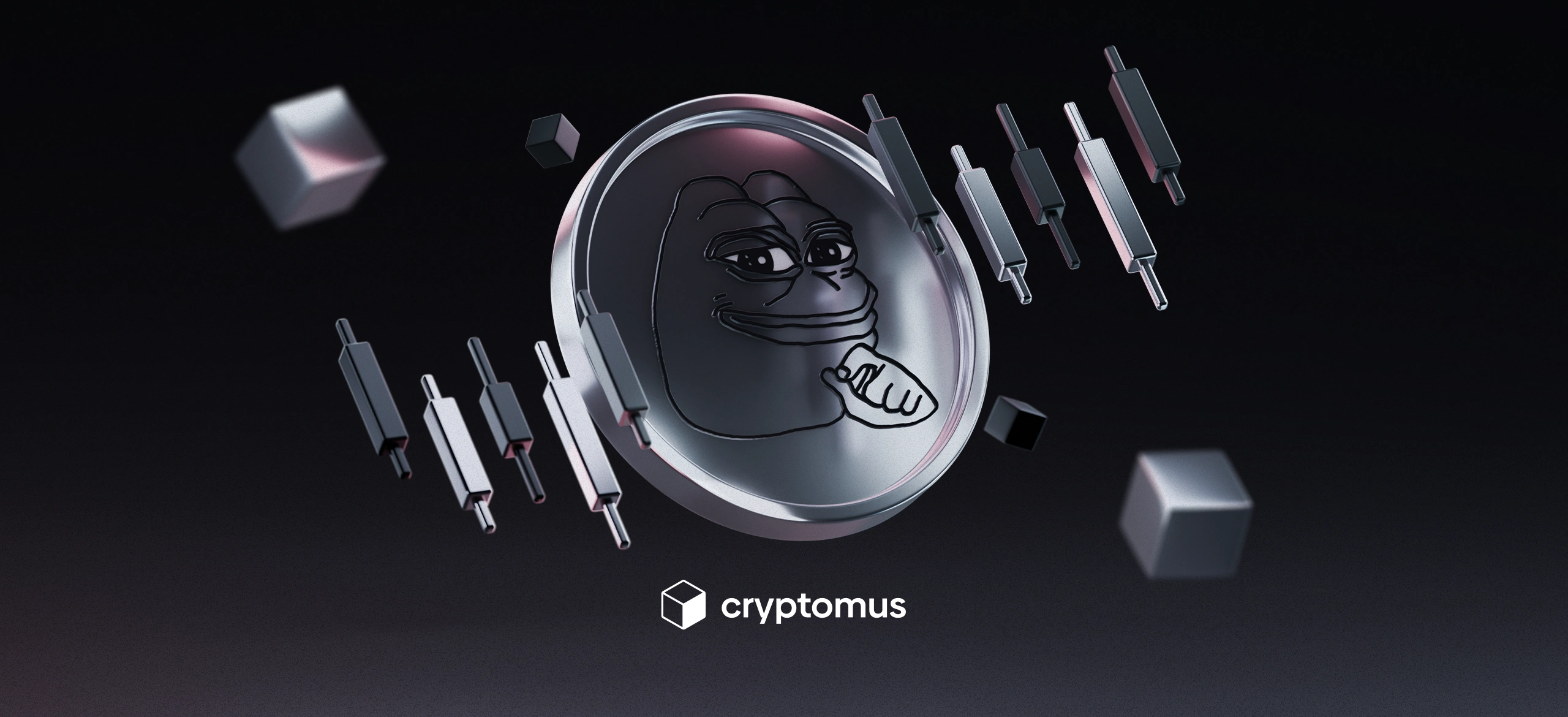
क्या staking क्रिप्टो में फ़ायदेमंद है: फायदे और नुकसान
विषयसूची
क्रिप्टोकरेंसी का विकास कमाई के कई रास्ते लेकर आया है, जिनमें से एक है staking। इसमें नेटवर्क को सपोर्ट करने के बदले क्रिप्टो में rewards मिलते हैं—यानी अपनी होल्डिंग बढ़ाने का काफ़ी आसान तरीका। हालाँकि, staking में कुछ जोखिम भी होते हैं, जिनसे निवेश शुरू करने से पहले अवगत होना ज़रूरी है। इस लेख में हम cryptocurrency staking को गहराई से समझेंगे और इसके pros और cons देखेंगे।
What Is Staking?
जैसा कि ऊपर बताया, staking क्रिप्टो से आय कमाने के लोकप्रिय तरीकों में से एक है। इसका काम करने का तरीका यह है: डिजिटल एसेट का मालिक अपने कुछ टोकन्स ब्लॉकचेन पर भेजता/लॉक करता है, जिससे नेटवर्क की सुरक्षा और परफ़ॉर्मेंस उच्च बनी रहे। इस योगदान के बदले प्रतिभागी को प्रतिशत के रूप में rewards मिलते हैं।
Staking PoS (Proof of Stake) एल्गोरिदम पर काम करता है और smart contracts का उपयोग करता है। इस प्रक्रिया में टोकन्स को नेटवर्क के संचालन हेतु लॉक करना शामिल है। नए प्रतिभागी जब अपनी कॉइन्स stake करते हैं, तो वे नेटवर्क को सुरक्षित करने और ट्रांज़ैक्शंस को validate करने में मदद करते हैं। ध्यान रहे, हर नेटवर्क staking की अनुमति नहीं देता—यह सूची सीमित है। लोकप्रिय staking ब्लॉकचेन में Ethereum, Cardano, Solana इत्यादि शामिल हैं।
बहुत-से निवेशक staking की ओर आकर्षित होते हैं क्योंकि इससे passive income संभव है और किसी विशेष तकनीकी उपकरण की आवश्यकता नहीं होती। फिर भी, अन्य सभी क्रिप्टो कमाई तरीकों की तरह इसके भी अपने फायदे और जोखिम हैं।
Pros Of Staking
Staking के कई लाभ हैं। सबसे पहले, इसे passive income उत्पन्न करने की क्षमता के लिए चुना जाता है। साथ ही, इसके फायदे इससे भी व्यापक हैं—इन्हें क़रीब से देखें।
Passive Income प्राप्त होना
जैसा बताया, cryptocurrency staking में आपकी कॉइन्स नेटवर्क/वॉलेट में लॉक रहती हैं। rewards का आकार नेटवर्क और staked राशि पर निर्भर करता है, पर किसी भी स्थिति में यह आपको आय देता है। यानी बिना सक्रिय ट्रेडिंग के भी आय संभव है।
Rewards पर ऊँचे ब्याज दरें
Cryptocurrency staking परंपरागत निवेशों की तुलना में अधिक रिटर्न देता है—औसत वार्षिक रिवॉर्ड रेट ~11% बताया जाता है। कुछ नेटवर्क ~20% तक, और कुछ ~50% तक भी ऑफ़र करते हैं। ऐसे अनुकूल रिटर्न staking को क्रिप्टो एसेट बढ़ाने का आकर्षक तरीका बनाते हैं।
सुरक्षित नेटवर्क
Staking एक decentralized ढाँचे में होता है—कोई एकल “बॉस” नहीं। इससे नेटवर्क-संबंधी जोखिम घटते हैं। प्रतिभागी अपनी कॉइन्स से नेटवर्क की अखंडता और ब्लॉकचेन सुरक्षा बनाए रखते हैं। यह योगदान आर्थिक और वैचारिक—दोनों रूप में लाभकारी है, और validators को नेटवर्क के हित में कार्य करने के लिए प्रेरित करता है।
नेटवर्क गवर्नेंस
Decentralized प्रकृति के कारण हर सदस्य बदलावों पर प्रभाव डाल सकता है। उदाहरण के लिए, stakers प्रोटोकॉल अपडेट्स पर वोट देकर नेटवर्क की दिशा तय करने में भाग लेते हैं, जिससे संचालन/शर्तें सहभागी-अनुकूल रहें।
ऊर्जा दक्षता
Staking के लिए विशेष तकनीकी ज्ञान या भारी हार्डवेयर की आवश्यकता नहीं—टोकन्स को होल्ड/लॉक रखना पर्याप्त है। यह ऊर्जा-कुशल और पर्यावरण-अनुकूल प्रक्रिया है, जिसमें ब्लॉक्स बनाने और ट्रांज़ैक्शन वैलिडेट करने हेतु न्यूनतम कंप्यूटिंग पावर चाहिए।

Cons Of Staking
हालाँकि staking का उद्देश्य प्रॉफ़िट बढ़ाना है, इसके कुछ जोखिम भी हैं—खासकर मार्केट मूवमेंट्स और सुरक्षा से जुड़े। आइए समझें।
वोलैटिलिटी का जोखिम
मार्केट वोलैटिलिटी के कारण घाटा हो सकता है। यदि staked क्रिप्टो की कीमत गिरती है, तो प्रॉफ़िट कम/निगेटिव हो सकता है और आपकी होल्डिंग प्रारंभिक निवेश से कम रह सकती है। इसलिए जोखिमों को ध्यान में रखते हुए पोर्टफ़ोलियो डाइवर्सिफ़ाइ करें—उदाहरण के लिए, कुछ हिस्सा हाई-रिटर्न/हाई-वोलैटाइल staking में और कुछ अधिक स्थिर/लो-कैपिटलाइज़ेशन क्रिप्टो में रखें।
न्यूनतम निवेश की आवश्यकता
कई नेटवर्क्स staking के लिए न्यूनतम राशि तय करते हैं। जैसे Ethereum को validator स्तर पर 32 ETH डिपॉज़िट चाहिए। यदि आपके पास मिनिमम नहीं है, तो बाधा आ सकती है—ऐसी स्थिति में staking pools के ज़रिए हिस्सा लेकर rewards शेयर कर सकते हैं।
टोकन्स का लॉक होना
Cryptocurrency staking में टोकन्स एक निश्चित अवधि के लिए लॉक होते हैं। यदि आपने 1 वर्ष के लिए stake किया, तो इस दौरान एक्सेस सीमित रहेगा—जिससे नए अवसर छूट सकते हैं या तेज़ प्राइस मूवमेंट पर त्वरित प्रतिक्रिया संभव नहीं रहती। अलग-अलग नेटवर्क्स में लॉक-पीरियड अलग होते हैं—अपनी सुविधा अनुसार चुनें।
तकनीकी जोखिम
Staking नेटवर्क में तकनीकी समस्याओं/फ्रॉड का जोखिम बना रहता है। आपकी सुरक्षा काफी हद तक उस प्लेटफ़ॉर्म पर निर्भर है जहाँ आप staking करते हैं—वह प्रतिष्ठित और सुरक्षित होना चाहिए।
यदि आप Cryptomus पर stake करते हैं, तो जोखिम काफ़ी घट जाता है: प्लेटफ़ॉर्म encryption से सुरक्षित है और validators व delegators—दोनों का रजिस्ट्रेशन से पहले वेरिफ़िकेशन होता है। इसलिए आपके फ़ंड्स सुरक्षित रहते हैं। किसी भी प्रश्न/कठिनाई पर सपोर्ट तुरंत सहायता करता है।
अविश्वसनीय Validators
कभी-कभी ऐसे मामले आते हैं जहाँ कुछ validators समय पर निवेशकों को भुगतान ट्रांसफ़र नहीं करते, या कुछ प्रोजेक्ट्स में rewards बहुत देर से मिलते हैं। इसलिए विश्वसनीय प्लेटफ़ॉर्म चुनने के साथ-साथ उसके staking नियमों को विस्तार से पढ़ें—रिवॉर्ड अमाउंट, withdrawal नियम और payout dates ज़रूर जाँचें। और कभी भी सीधे validator को फ़ंड्स न भेजें—यह फ्रॉड का संकेत हो सकता है।
क्या staking करना फ़ायदेमंद है?
Staking दीर्घकाल में क्रिप्टो ओनर्स को passive income देता है। rewards प्रायः ऊँची ब्याज दरों से बनते हैं, जिससे प्रतिभागियों के फ़ंड्स तेज़ी से बढ़ सकते हैं। इस तरह staking स्थिर और लाभकारी आय का ज़रिया है, जो शॉर्ट-टर्म प्राइस फ़्लक्टुएशंस के जोखिम को भी कम कर सकता है।
कमाई की स्थिरता के अलावा, staking stakers के निवेश से ही नेटवर्क की सुरक्षा सुनिश्चित करता है। बेशक, फ्रॉड/हैकिंग का जोखिम हमेशा रहता है—पर विश्वसनीय प्लेटफ़ॉर्म इस्तेमाल करने से यह बाधा भी काफ़ी हद तक दूर हो जाती है, और staking प्रक्रिया सुरक्षित व फ़ायदेमंद बनती है।
Staking शुरू करने से पहले अपनी क्रिप्टो को अच्छे से रिसर्च करें, चुने हुए प्लेटफ़ॉर्म के लाभ-जोखिम समझें और मार्केट पर नज़र रखें—ये उपाय आपकी इन्वेस्टमेंट को अधिक सुरक्षित और लाभदायक बनाएँगे।
उम्मीद है, इस गाइड से आपको staking के pros और cons स्पष्ट हो गए होंगे। यदि फिर भी कोई प्रश्न है, तो कमेंट्स में ज़रूर पूछें।
अपनी क्रिप्टो यात्रा को सरल बनाएं
क्या आप क्रिप्टोकरेंसी स्टोर करना, भेजना, स्वीकार करना, स्टेक करना या ट्रेड करना चाहते हैं? क्रिप्टोमस के साथ यह सब संभव है - साइन अप करें और हमारे आसान टूल्स से अपने क्रिप्टोकरेंसी फंड्स को मैनेज करें।
शुरू हो जाओ



